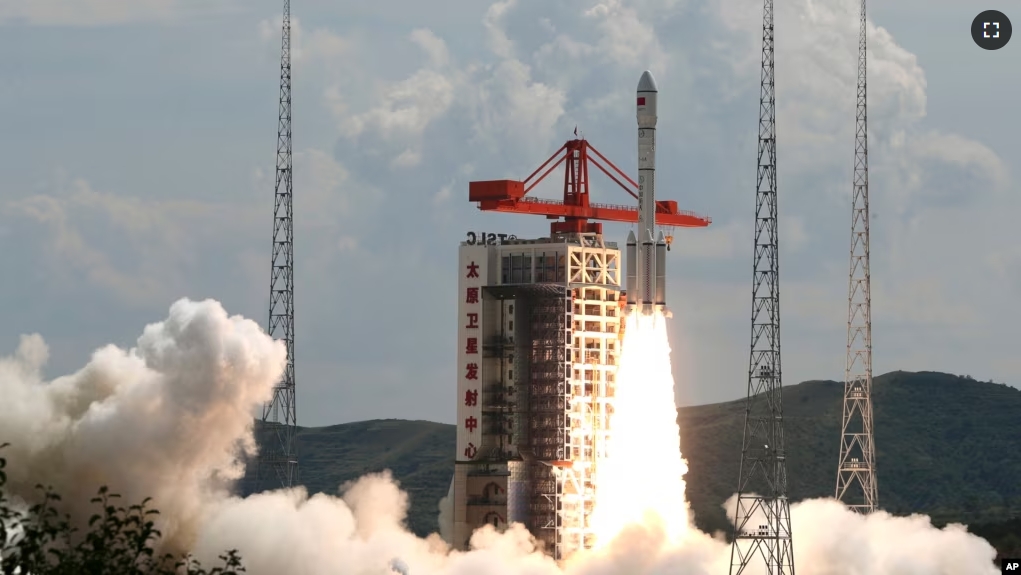Experts say a Chinese rocket that recently helped launch 18 satellites broke apart in space and created hundreds of pieces of debris.
Space traffic observation organizations said data showed part of a Chinese rocket came apart soon after making the satellite deployments. State media in China reported the satellites were carried to space aboard a Long March-6 rocket and reached orbit on August 6.
The satellites are part of a Chinese government-backed effort that seeks to provide high-speed internet services to people around the world. Such satellites operate from between 300 and 2,000 kilometers above Earth. The area is known as low Earth orbit.
The project is expected to become a competitor to American technology company SpaceX, which offers its own satellite-based internet service. SpaceX has so far deployed about 5,500 satellites for its Starlink service, Reuters news agency reports.
Several groups that continuously observe satellite and spacecraft traffic said the Chinese rocket stage that broke apart in space created at least 700 pieces of debris. The floating debris is also known as space junk. It can harm active spacecraft, other satellites and even the International Space Station (ISS).
The group that launched the satellites is state-financed Shanghai Spacecom Satellite Technology. The company did not answer requests from Reuters for comment about the situation.
Some experts said the high level of debris had placed more than 1,000 satellites and other orbiting objects at risk.
U.S. space-tracking company LeoLabs told Reuters it estimates the number of debris pieces created is likely over 900. The collection of debris sitting about 800 kilometers above Earth’s surface is expected to last several years, LeoLabs added.
Experts said it was not clear whether the rocket body’s breakup was caused by a crash into another object or by an explosion of unused rocket fuel. The U.S. Space Command said early on in the event that at least 300 pieces of debris had been created.
Audrey Schaffer is the vice president of strategy at space-tracking company Slingshot Aerospace. She told Reuters her team had estimated over 1,100 satellites and other space objects were likely at risk of hitting the Chinese rocket debris.
Schaffer noted, however, that about one-third of at-risk objects are active spacecraft and could probably move out of the way. The rest are believed to be uncontrollable pieces of existing space junk that would have no way of avoiding new debris.
In 2022, a Long March 6A rocket stage similarly broke apart in space and created hundreds of pieces of debris. That event led to criticism of China from Western countries and space sustainability campaigners. The groups have called on China to establish better controls for how it retires used rocket bodies.
“It’s disappointing that the rocket had the same issue again,” Schaffer said. She added, “These kinds of debris-generating events that are potentially avoidable should not occur anymore.”
I’m Bryan Lynn.
Reuters and The Associated Press reported on this story. Bryan Lynn adapted the reports for VOA Learning English.
_____________________________________________
Words in This Story
debris – n. broken pieces of something
junk – n. material that is no longer working or useful
stage – n. a certain period of development
track – v. to closely follow the movements of something
strategy – n. a plan used to achieve something
sustainable – adj. causing little or no damage to the environment over a period of time
disappoint – v. to fail to fulfill the hopes or expectations of someone
occur – v. to happen
